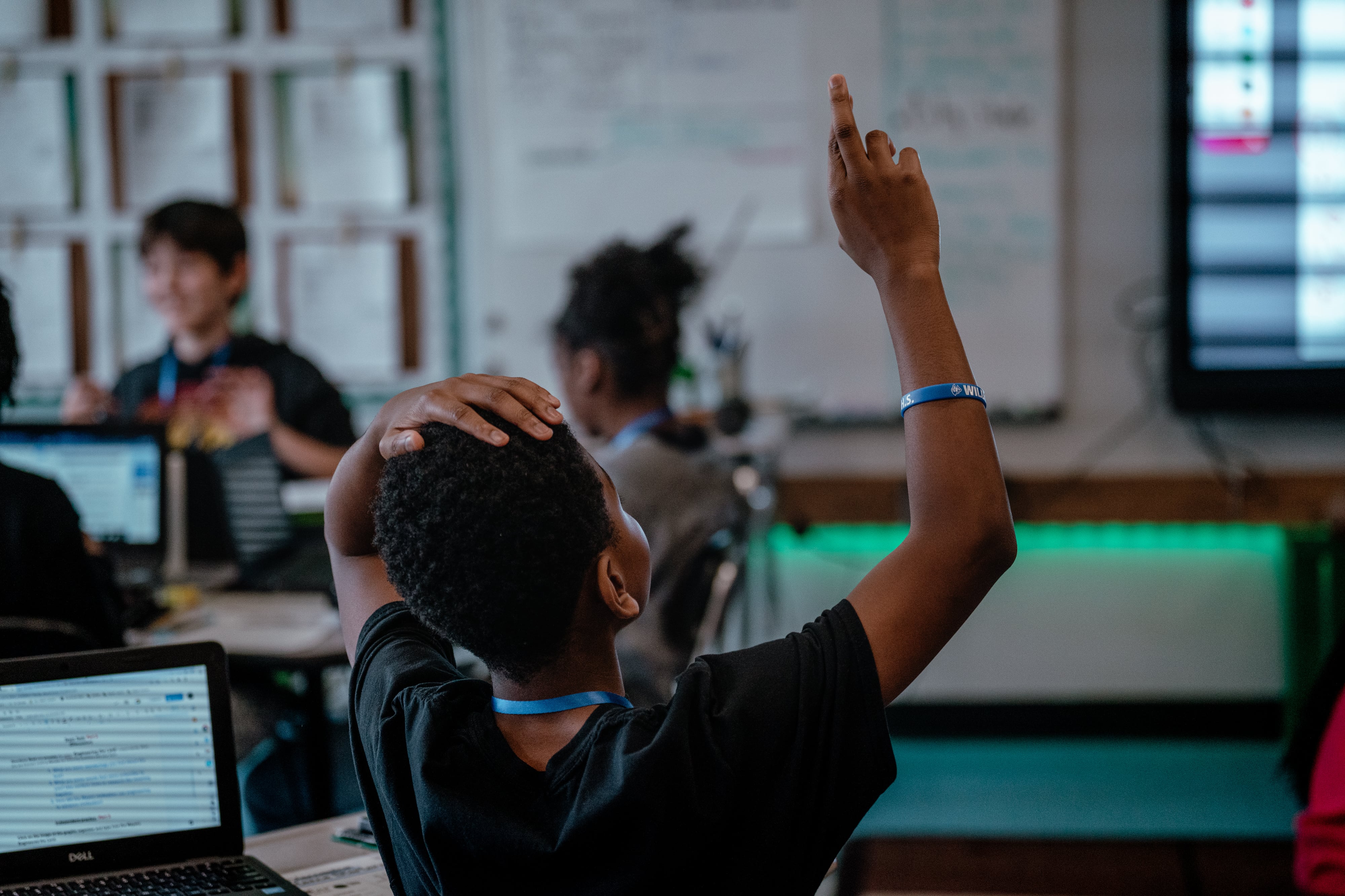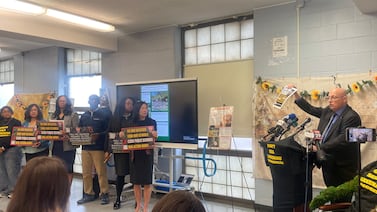Sign up for Chalkbeat Chicago’s free daily newsletter to keep up with the latest education news.
Chicago Public Schools will host a series of meetings over the next two weeks to hear about how it can improve the school experience for Black students.
The first of eight meetings is taking place at 5:30 p.m. Tuesday at Uplift Community High School in Uptown.
The public meetings are part of the district’s new Black Student Success Working Group, which CPS created in the fall to provide district leaders with recommendations for its upcoming “Black Student Success Plan.” That blueprint will then be folded into the district’s overall five-year strategic plan, which is expected to be finalized this summer.
CPS, like other districts across the nation, has long reported academic disparities between Black students and their peers, who make up 35% of the school system. In Chicago, 79.7% of Black students graduated on time last year, a rate that has gradually improved but is still behind the graduation rate for all other racial groups, according to district data. And 12.6% of Black students dropped out last year, the highest percentage for any racial group.
“We’re meeting as a working group because historically and today, Black students are situated furthest from opportunity,” said Fatima Cooke, CPS’s chief of equity, engagement and strategy.
“There is so much more work that still needs to be done to create those holistic systems that foster environments where Black students are empowered, that they feel seen, and that they have a sense of belonging.
The working group is made up of more than 60 members, including parents, students, educators, district employees and other community members, according to a CPS press release. The group has been meeting since December and has also convened focus groups of students, families, and staff, Cooke said.
While the working group has already drafted some recommendations that that focus on academics, the members don’t want to present those ideas to the community yet because they want “authentic” input, said Ayanna Clark, a CPS parent who is a member of the working group and also serves as assistant chief of staff to the City Council’s education committee under Ald. Jeanette Taylor.
“We don’t want to go into a space where we’re once again telling people what to think and giving them a set of options and telling them to choose from the set of options,” Clark said.
State legislation that paves the way for Chicago’s first elected school board creates a “Black Student Achievement Committee in response to advocacy from longtime community advocates. Cooke said this work “is parallel to that” and won’t “impede” a committee.
The district working group is focused on three priorities. These are Black students’ daily school experience; “adult capacity and continuous learning,” which focuses on workforce diversity and professional development to ensure teachers are meeting student needs; and how community organizations can support Black students’ needs that “can’t be met by the school-based budget,” said Christopher Shelton, a former science teacher who now works for the district’s central office and is helping to facilitate the group.
The group has also discussed ideas to better support Black students, including providing teachers with more professional development; focusing on conflict resolution practices; diversifying the teacher workforce; and to “leverage corporate, government, and community partnerships to bridge resource gap,” according to a presentation posted on the district’s website.
‘Focusing on what the students need’
The group’s first meeting in December included a history of how city policies have impacted Black families and students. Some of the topics that members highlighted during that meeting were the Great Migration, the practice of redlining that drove racial segregation, and the closing of 50 schools — most of which were majority Black schools — under former Mayor Rahm Emanuel.
The group also reviewed data on academic disparities. At the beginning of this school year, 62% of Black students in grades kindergarten to second grade were behind one grade level in reading, while 66% were behind in math, according to iReady data presented to the group at the December meeting. That’s higher than most other racial groups except for Hispanic students, who are behind in both subjects at the same rates, and the 76% of Haiwaiian or Pacific Islander students who were behind in math.
Chicago’s Black students are the least likely to earn early college credit, which can help offset college costs. And outside of academics, the group looked at data showing that Black girls received more than 7 out of every 100 out-of-school suspensions last school year, while Black boys received more than 10 — the highest rates for any racial group, which grew from 2022.
One bright spot that the group has heard about: Over the past six years, more Black eighth graders have enrolled at schools that offer algebra.
Then there are factors that can place an additional burden on Black students outside school buildings. For example, roughly 20% of Black students travel six or more miles to school compared with 11% of all students.
District officials have previously highlighted how students should not have to leave their neighborhoods to attend a school that fits their needs. In December, the Board of Education made waves when it announced that, as part of the creation of that strategic blueprint, it was planning to rethink the district’s school choice system and invest more in neighborhood schools. That system includes schools that require an application, including charters, magnets, selective enrollment schools, and gifted programs.
Jahnae Roberts, a junior at Walter H. Dyett High School for the Arts and a member of the working group, said she hears the need for more support around mental health and social emotional learning for Black students. Her peers have also shared with her that they don’t feel some teachers know how to work with or teach them.
The working group is “focusing on what the students need, not just education-wise, but what are they receiving at school that they might not receive at home to make it a better place for them?” Jahnae said.
The working group and the ensuing community meetings are one component of the district’s development of a new five-year strategic plan. The district hosted meetings over improving school facilities, and it will have more community meetings around the broader strategic plan.
Reema Amin is a reporter covering Chicago Public Schools. Contact Reema at ramin@chalkbeat.org.






